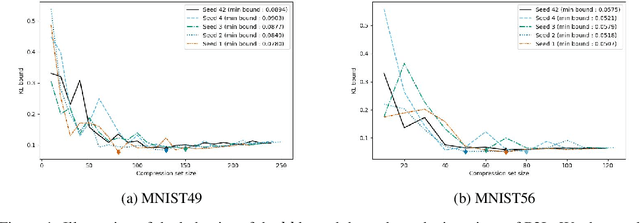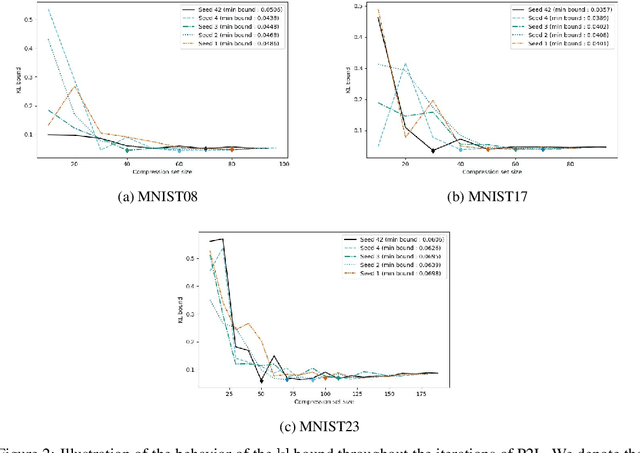Sample compression unleashed : New generalization bounds for real valued losses
Paper and Code
Sep 26, 2024



The sample compression theory provides generalization guarantees for predictors that can be fully defined using a subset of the training dataset and a (short) message string, generally defined as a binary sequence. Previous works provided generalization bounds for the zero-one loss, which is restrictive, notably when applied to deep learning approaches. In this paper, we present a general framework for deriving new sample compression bounds that hold for real-valued losses. We empirically demonstrate the tightness of the bounds and their versatility by evaluating them on different types of models, e.g., neural networks and decision forests, trained with the Pick-To-Learn (P2L) meta-algorithm, which transforms the training method of any machine-learning predictor to yield sample-compressed predictors. In contrast to existing P2L bounds, ours are valid in the non-consistent case.
 Add to Chrome
Add to Chrome Add to Firefox
Add to Firefox Add to Edge
Add to Edge